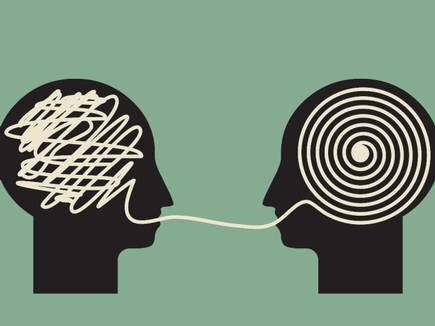How to Be a Better Communicator
To become a more effective communicator, you first need to acknowledge that everybody is doing the best they can. No one is trying to be a horrible communicator, and everybody has a different style of communication. That means the secret is being a good listener.
When you're actively listening to what the other person is saying, you can acknowledge it, process it, internalize it, and can say with confidence that you heard them. It's the only way you can move forward confidently with whatever word or action that comes next.
Fill Pauses with Encouragement
When many of us converse with others, we're trying to think of something to say or add when they're finished speaking. This is an intuitive approach to communication: I'm communicating back once I'm actively speaking.
But the truth is, good communication is thinking about the way you're listening, not how you're going to start speaking. That will significantly change the way you communicate – instead of half-listening, you're taking in the new information they're giving you.
It's also important to consider how you might be interrupting the person by chiming in. Even if there's a pause in their words, adding something could interrupt their train of thought and processing that may have led to something (even more) poignant.
For example, rather than fill the pause with your own perspective, you could say, "That's really interesting." That lessens the potential awkwardness of the silence that surrounds someone collecting their thoughts and continuing forward.
Overcoming the Fear of Listening
It might seem effortless, but listening (good communicating) can be a challenge, especially today. For one thing, our reliance on texting, emails, and social media make it easy to fall out of practice. But in general, sitting in silence with another person can feel uncomfortable.
Thankfully, that's only because you're out of practice!
I know what it's like to feel like you need to impress the other person – you want to assert your knowledge or make people believe in you. I get that. But you don't just gain a lot by emphasizing listening over talking; you give the other person a tremendous sense of respect, empathy, and importance. Everybody wants to be heard, and becoming a person who really hears is an appealing quality that's worth honing.
When the other person fills the silence, you really do gain a lot more insight about them. As a therapist, I like to ask new clients if they would like to tell me about themselves or if they prefer that I ask them questions. And whether right off the bat or after some questions, the most significant revelations occur when a moment of silence is filled with their words.
The same is true for everyday life.
related articles











Haruki Murakami: “Pain is inevitable. Suffering is optional.”
This complicated life that we lead is incredibly painful. Loss, grief, anger, transition…all things that cause us to stretch and grow also cause emotional discomfort. In fact, even the most beautiful experiences can feel bittersweet at times. Yet, when we try to avoid pain, we find ourselves experiencing a different type of discomfort: the sadness of a life not fully lived. As the quote says: “pain is inevitable” and that means there is no way around it. The only way is THROUGH.